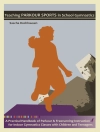In Mary Ware Dennett’s groundbreaking book, ‘The Sex Side of Life: An Explanation for Young People, ‘ the author courageously explores the taboo topic of sex education, focusing on providing young people with accurate and progressive information. Written in a clear and accessible style, Dennett’s work challenges traditional societal norms and advocates for comprehensive sex education to promote healthy attitudes towards sexuality. This book is a significant contribution to early 20th-century literature, as it tackles a subject that was rarely discussed during that time, shedding light on the importance of education and empowerment. Dennett’s straightforward approach and informative content make this book a valuable resource for readers interested in understanding the history and evolution of sex education. Mary Ware Dennett’s dedication to advocating for sex education and her progressive views on sexuality make her a pioneer in the field. Her personal experiences as a suffragist and birth control advocate likely influenced the writing of this book, positioning her as a leading voice in the fight for sexual liberation and knowledge. ‘The Sex Side of Life’ is a must-read for those interested in the intersection of literature, feminism, and social reform, offering a thought-provoking perspective on the importance of sexual education and empowerment.
Despre autor
Mary Ware Dennett (1872–1947) was an influential American writer, artist, and advocate for women’s rights, particularly known for her pioneering work in sex education. Born in Worcester, Massachusetts, Dennett grew a passion for social activism early in life, and this passion permeated her diverse career, which encompassed roles such as a suffragist and a pacifist. Her seminal book, ‘The Sex Side of Life: An Explanation for Young People, ‘ stands as a notable contribution to the field of sex education, a reflection of her commitment to candid and comprehensive educational literature at a time when the subject was often deemed taboo. The book, initially written as a letter to her sons in 1915 and published in 1922, provided an enlightened and factual account of human sexuality, aimed at educating the youth to prevent the moral and physical consequences of ignorance in this crucial aspect of life. As a result of her work, Dennett faced significant legal challenges and societal pushback, including obscenity charges, yet her perseverance helped pave the way for a shift in public discourse around sex education. Dennett’s literary style, characterized by its clarity, honesty, and straightforward approach, significantly impacted the progress of the sexual liberation movement and highlighted the necessity of informed discourse on sexual health and ethics. She is remembered as not only an author but as an ardent champion of civil freedoms and the empowerment of informed choice.












